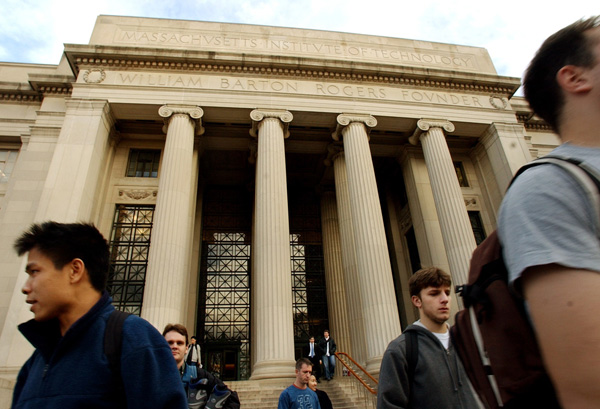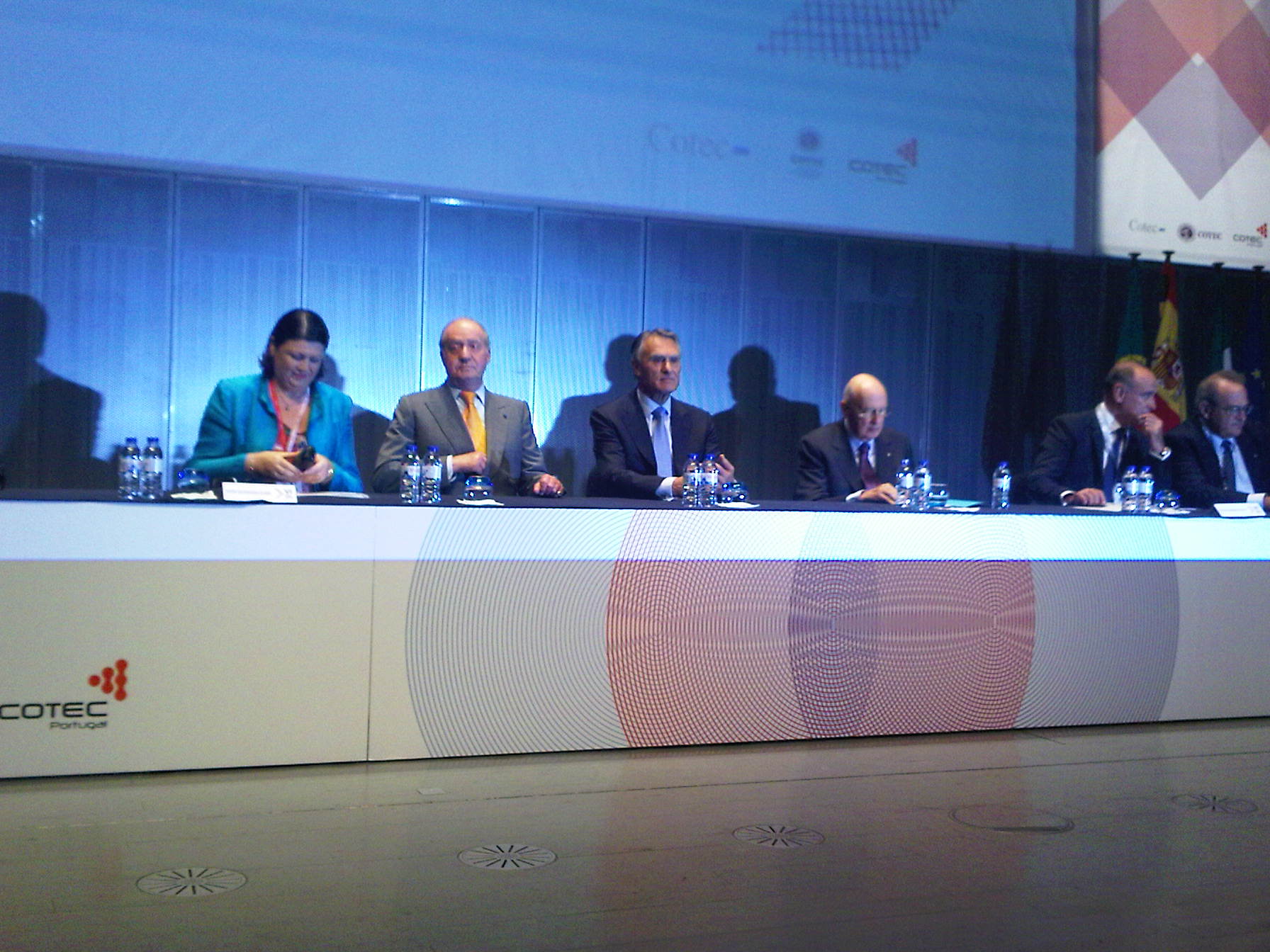 Venture capital fund-raising through the first nine months of 2010 was only a bit ahead of last year, as the industry continues to wrestle with a lack of liquidity and limited-partner caution.
Venture capital fund-raising through the first nine months of 2010 was only a bit ahead of last year, as the industry continues to wrestle with a lack of liquidity and limited-partner caution.
U.S. venture firms raised $9.2 billion for 103 funds during the first three quarters, according to Dow Jones LP Source, an industry database that tracks private equity fund-raising. This is slightly more than the $8.9 billion raised for 105 funds during the same period in 2009. Venture fund-raising for all of last year totaled $13.5 billion, the lowest since 2003. Dow Jones & Co., owned by News Corp., is publisher of this newsletter and newswire.
innovation DAILY
Here we highlight selected innovation related articles from around the world on a daily basis. These articles related to innovation and funding for innovative companies, and best practices for innovation based economic development.
The rebirth of VC (really!)
 To most, the world of venture capital appears to be in the midst of chaos. Poor 10-year returns. Many bloated GPs. The super angel/micro VC "phenomenon" (if it can be called that). Rumors of collusion. A largely closed IPO market. Stock market uncertainty. An uncertain regulatory climate. And on and on. A crazy time to be a venture capitalist, right? Well …
To most, the world of venture capital appears to be in the midst of chaos. Poor 10-year returns. Many bloated GPs. The super angel/micro VC "phenomenon" (if it can be called that). Rumors of collusion. A largely closed IPO market. Stock market uncertainty. An uncertain regulatory climate. And on and on. A crazy time to be a venture capitalist, right? Well …
I contend that venture capital, like every other asset class, moves in cycles. It's only that most of our perspectives are so short that we tend to lose sight of the fact that what appears to be "historic" is, well, ordinary when viewed through a longitudinal prism. But as is the case with self-correcting systems, it will, in fact, correct (and likely overshoot as trend-shifts generally do).
Green Startups: Trapped In the 'Valley of Death'
S tartup companies call it the Valley of Death—the arduous terrain between proof of concept and the beginning of mass production and significant sales. In good times, just 40 percent of companies go public or get acquired, according to John Taylor, head of research at the National Venture Capital Assn. in Arlington, Va.
tartup companies call it the Valley of Death—the arduous terrain between proof of concept and the beginning of mass production and significant sales. In good times, just 40 percent of companies go public or get acquired, according to John Taylor, head of research at the National Venture Capital Assn. in Arlington, Va.
Now the Valley is even deadlier. Hundreds of U.S. cleantech startups find themselves stuck on the road to serious revenues because of the toxic combination of a stalled economy, scarce funding, and Washington's failure to enact comprehensive climate and energy legislation. The market for initial public offerings is frozen and venture capital is drying up because of uncertainty. Faysal Sohail, a managing director at CMEA Capital, a San Francisco fund that helps oversee $1.2 billion in venture capital investments, says that at the start of the year he had six profitable companies that were ready to go public but couldn't. "It's a sour mood," he adds.
Campus Philly's Annual Online Internship Fair

Campus Philly's Annual Online Internship Fair
October 25th - 31st
Recruit Your Spring Intern Now!
Connect with talented students from over 30 colleges, ALL ONLINE & IT'S FREE! Here's how to participate:
1. Go to www.campusphilly.org/careers
2. Click on "I Need An Intern"
3. Post your internship position between now and October 25th
Have more questions? Visit our FAQ
Campus Philly is a nonprofit organization that fuels economic growth by encouraging college students to study, explore, live, and work in the Greater Philadelphia tri-state region.
NC's Creativity Boom

Other states are taking notice – in November, IEI will share the impressive developments in North Carolina at the Creativity World Forum. But it is more important for IEI to call attention to the state's progress with all of you. We have captured some of the inspiring post-Forum activity taking place across North Carolina in our
NC Creativity Report. The report highlights how you are capitalizing on the state's creative potential, but also reveals there is still work to be done in harnessing North Carolina's creative assets.
An Operating System to Run It All
 Apple and Google will soon have more than just each other to worry about in the race to provide the software for smart phones and tablets. Later this month, Intel will announce that its MeeGo operating system is ready to run devices including touch screen tablets and phones.
Apple and Google will soon have more than just each other to worry about in the race to provide the software for smart phones and tablets. Later this month, Intel will announce that its MeeGo operating system is ready to run devices including touch screen tablets and phones.
Devices running MeeGo are likely to start appearing in early 2011. Netbooks are expected to appear first, then tablets and phones. MeeGo is different from Apple's iOS platform for the iPhone, iPod and iPad or Google's Android operating system, says Intel's head of open source strategy, Ram Peddibhotla, because it is intended to seamlessly link multiple devices. "MeeGo is ground-up designed and targeted at multiple devices--netbooks, phones, and TV devices," he says, describing a world in which a consumer could own multiple devices running the new operating system. "This allows these devices to work together more simply," he says. "For example, with a flick of your finger, transferring a movie or any other content onto another device."
10 Steps To Improve Entrepreneurship Education
E ntrepreneurs and educators agree on two fundamental points. The first is so obvious that it hardly bears repeating but let's restate it anyway: entrepreneurship is very, very important. Entrepreneurs are the critical driver of job creation and economic prosperity.
ntrepreneurs and educators agree on two fundamental points. The first is so obvious that it hardly bears repeating but let's restate it anyway: entrepreneurship is very, very important. Entrepreneurs are the critical driver of job creation and economic prosperity.
The second is equally important and often left unsaid: academic institutions can and should play a more central role in improving the quality and quantity of entrepreneurs. While many conversations we have on this topic start by someone asking whether entrepreneurship can be taught, they typically end with an impassioned discussion on how to improve entrepreneurship education in the United States and around the world. Why not learn lessons from successful and failed entrepreneurs and the many entrepreneurial "experiments" they have undertaken? To ignore this wealth of knowledge and expertise, to insist that entrepreneurship is an art learned only through experience is to ignore the potential to develop systematic lessons, to ignore the power of analysis and to fail to apply tools of social science to a critical part of our economy.
UK Angel Attacks Pay-To-Pitch Culture of Many European Angel Networks
 In 2008/09, £44.9m was invested by UK Business Angels registered to Angel Networks in UK based companies. Across the 5,500 registered Angels that is less than £10,000 per Angel. These figures are very poor and do not bode well for future economic growth. So what is a UK based digital company looking for funding to do?
In 2008/09, £44.9m was invested by UK Business Angels registered to Angel Networks in UK based companies. Across the 5,500 registered Angels that is less than £10,000 per Angel. These figures are very poor and do not bode well for future economic growth. So what is a UK based digital company looking for funding to do?
I have invested in 20 companies in the UK over the last six years, and three companies in Canada as a Business Angel. I am by no means an expert but with the experience I have had in Canada with Angel groups and as of recently with Seedcamp, I do find the UK ‘organised’ angel scene very depressing.
Bad news for electric cars: consumers don’t understand them
 Despite the hype and the near-ubiquity of the Toyota Prius (pictured), most Americans remain leery of buying alternative-fuel vehicles. That’s probably because they don’t have the basic knowledge to understand it, according to a new survey conducted by Harris Interactive.
Despite the hype and the near-ubiquity of the Toyota Prius (pictured), most Americans remain leery of buying alternative-fuel vehicles. That’s probably because they don’t have the basic knowledge to understand it, according to a new survey conducted by Harris Interactive.
The survey, which sampled 2,242 adults in July, took a look at consumer opinions on alternative fuel vehicles on the market — hybrids, all-electric, hydrogen electric and diesel and biodiesel-compatible cars.
The good news: Almost half of those surveyed would be interested in buying some kind of alternative-fuel car. The bad news — nearly three-fourths said they don’t really understand the differences between the various categories, saying they were either not at all or only somewhat knowledgeable about the topic. And almost 60 percent said they had never considered buying one.
The New Forbes Power Women
 Forbes' power lists are synonymous with moguls and movie stars, heads of state and captains of business. One look at the 2010 World's 100 Most Powerful Women list and it is clear that we've come up with a new ranking of the female power elite that reflects the New Order of now.
Forbes' power lists are synonymous with moguls and movie stars, heads of state and captains of business. One look at the 2010 World's 100 Most Powerful Women list and it is clear that we've come up with a new ranking of the female power elite that reflects the New Order of now.
When we set out to identify this year's list, we decided it was time to look up and out into the broader culture. Our assessment is based less on traditional titles and roles and more on creative influence and entrepreneurship. They have built distinctive companies and brands and championed weighty causes, sometimes through unconventional means; in other cases they have broken through gender barriers.
Philadelphia's Science Center battles the powers that be
Philadelphia's Science Center battles the powers that be from TheDeal TV on Vimeo.
Philadelphia's University City Science Center is the oldest urban research park in the nation and a powerful engine of growth for the region's economy. Founded in 1963 as a not-for-profit owned by the city's leading universities and hospitals, the Science Center lets laboratory and office space to startup companies focused on the life sciences. But some of the undeveloped land that the center sits on in West Philadelphia is under siege by the city's Redevelopment Authority, underscoring the difficulty that governments and corporations are feeling in the wake of the financial meltdown.
Singapore Develops Innovation And Entrepreneurial Ecosystem
 This Techventure event serves to bring together the various players of the entrepreneurial eco-system.
This Techventure event serves to bring together the various players of the entrepreneurial eco-system.
Among us today are high-tech entrepreneurs who work in exciting young companies at the frontiers of technology, making new products and services that may well change the way we live, work and play.
Other participants are business angels and experienced technology incubator managers, who provide the seed capital for startup companies and, more important, the valuable guidance and mentorship to help these risky ventures grow.
5 Ways to Incentivize Your Employees – Without Breaking the Bank
 While bonuses, paid holidays and other formal employee benefits are good for business, they are not a guarantee of employee or team performance. In fact, studies have proved that “soft” benefits, such as employee incentive programs, are directly responsible for driving increased efficiencies and productivity among employees.
While bonuses, paid holidays and other formal employee benefits are good for business, they are not a guarantee of employee or team performance. In fact, studies have proved that “soft” benefits, such as employee incentive programs, are directly responsible for driving increased efficiencies and productivity among employees.
And while “employee-friendly” business practices have traditionally been perceived as frivolous or a distraction, when structured and managed effectively they not only boost morale, but produce motivated teams dedicated to the success of your business.
4 Tips for Turning New Customers Into Repeat Customers
 So much of our energy is spent trying to attract new customers. We want to increase brand awareness, make new connections and woo new customers into our stores. But we’ve all been told that keeping an old customer is cheaper than acquiring a new one. So what are you doing to make customers swoon once you’ve already attracted them? What are you doing to turn new customers into repeat and even lifelong customers?
So much of our energy is spent trying to attract new customers. We want to increase brand awareness, make new connections and woo new customers into our stores. But we’ve all been told that keeping an old customer is cheaper than acquiring a new one. So what are you doing to make customers swoon once you’ve already attracted them? What are you doing to turn new customers into repeat and even lifelong customers?
Here are 4 tips to help you do just that.
1. Offer return shopping discounts.
One way to give people an incentive to keep shopping with you is to offer discounts to help get them back in the store. That may mean throwing a coupon in with their order or sending them a targeted mailing two weeks after their first purchase. Either way, the coupon gives them a reason to seek you out again and gives them something branded to hold on to and associate you with. Leaving customers with something tangible they can use helps to build your brand and keeps their experience with you fresh in their minds. If you’re going to use discount coupons as a way to target repeat customers, make sure the discount is sizable or unique enough that it will stand out from more generic offers. You need to give someone a reason to use the coupon. Otherwise it (and your brand) will get stuck in their junk drawer.
Tell Us Your Social Media Do’s and Don’ts
 Are you looking for ideas on how to leverage social media for your business? You’ve got your Facebook Fan Page, LinkedIn Profile, Twitter account and YouTube Channel. But how do you make the most of all these social networking resources?
Are you looking for ideas on how to leverage social media for your business? You’ve got your Facebook Fan Page, LinkedIn Profile, Twitter account and YouTube Channel. But how do you make the most of all these social networking resources?
No worries. We’ve gone out and asked some experts to share the latest and greatest Social Media Do’s and Don’ts for small business. These aren’t last year’s tips; they are new and improved. We promise you’ll find a new twist on how to get your investment in social media to pay off.
Read through our list; then add some of your own (see bottom of this post for instructions).
Some Tips for Finding Innovators
 “Innovation can be defined as coming up with ideas that bring value to your customers and then bringing those ideas to life.” says Robert Tucker, author of Driving Growth through Innovation. Sounds like the type of employee that every company would want to not only find but hire. Before you run off in search of your next Thomas Edison read on.
“Innovation can be defined as coming up with ideas that bring value to your customers and then bringing those ideas to life.” says Robert Tucker, author of Driving Growth through Innovation. Sounds like the type of employee that every company would want to not only find but hire. Before you run off in search of your next Thomas Edison read on.
The October issue of INC. Guidebook offers up some good advice regarding finding innovators. I have creatively added my outside-the-box thoughts to the points that were made.
- Decide which kind of creativity counts – Hiring for creativity starts with deciding how much of it you can tolerate. Many companies find it difficult to integrate true outside-the-box thinkers, true innovators.
- Breadth of Creativity vs. Depth of Creativity – Understand the difference between the two. Breadth of creativity is ad agency, IDEO, Disney Imangineers whereas depth of creativity is looking for better ways, process improvements within one’s own job or department that when implemented add value to your customers.
Europe Aims to Boost Economy in New Innovation Plan
 Europe has a new plan aiming to ensure that science will get the continent's economy humming again. The Innovation Union, adopted yesterday by the European Commission, is a new attack on one of Europe's intractable problems: Research is plentiful and of relatively high quality, but it doesn't as often as desired result in products and services that create jobs and wealth for the 27 member states of the European Union.
Europe has a new plan aiming to ensure that science will get the continent's economy humming again. The Innovation Union, adopted yesterday by the European Commission, is a new attack on one of Europe's intractable problems: Research is plentiful and of relatively high quality, but it doesn't as often as desired result in products and services that create jobs and wealth for the 27 member states of the European Union.
The Innovation Union document is billed as the "flagship" of the Europe 2020 plan for economic growth. High in aspirations, the plan proposes a wide range of measures—from bolstering funding for science and radically simplifying the European Unions's own funding procedures to removing barriers to international collaboration.
4 Problems With Facebook's Business Model That Would Kill Any Other Startup
 According to Wikipedia, the odds of being struck by lightning over the course of a lifetime are about 1 in 3,000.
According to Wikipedia, the odds of being struck by lightning over the course of a lifetime are about 1 in 3,000.
Assuming that lightning strikes are independent events, the chances of getting struck by lightning 7 times in one lifetime are about 1 in about 2.2 trillion trillion (that second trillion is not a typo, the number is really that big). Despite incomprehensibly long odds, this is exactly what happened to a man named Roy Sullivan between the years of 1942 and 1977.
Granted, Sullivan was a Park Ranger in Virginia and spent quite a bit of time outdoors, but my point is that the world is a very big place and highly improbable events happen all the time. The law of large numbers says that with a big enough sample, many highly improbable events are bound to occur, like when a woman won the New Jersey lottery twice in a span of four months (odds are about one in 17 trillion). Or like when a college student coded a web site that now has over 500 million users and is worth upwards of 20 billion dollars. The name of this (former) college student is Mark Zuckerberg and the company is, of course, Facebook.

 Microbial genomicist Jonathan Eisen had racked up an impressive publication record and thousands of citations long before he ever launched his über-popular evolutionary science blog,
Microbial genomicist Jonathan Eisen had racked up an impressive publication record and thousands of citations long before he ever launched his über-popular evolutionary science blog, 

